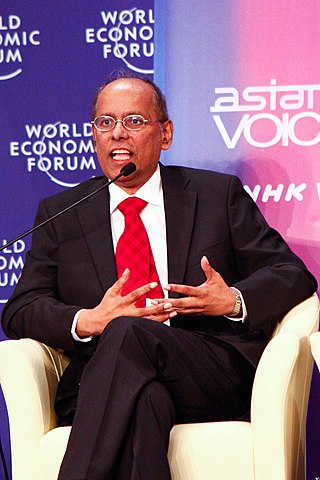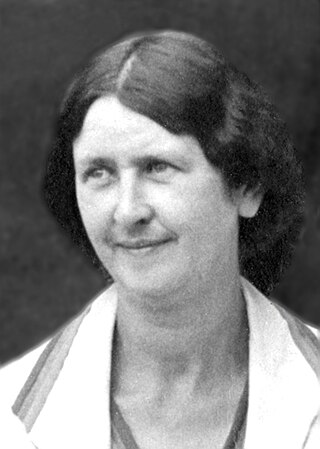Related Research Articles

Neurosurgery or neurological surgery, known in common parlance as brain surgery, is the medical specialty that focuses on the surgical treatment or rehabilitation of disorders which affect any portion of the nervous system including the brain, spinal cord, peripheral nervous system, and cerebrovascular system. Neurosurgery as a medical specialty also includes non-surgical management of some neurological conditions.
Dr. H. Richard Winn is an American neurosurgeon, and professor of neurosurgery and neuroscience at Mount Sinai School of Medicine. Winn was chairman of neurological surgery at the University of Washington School of Medicine from 1983 to 2002. Winn has made numerous contributions to the field of neurosurgery, specifically to the physiology of cerebral blood flow regulation and clinical studies of the natural history of cerebral aneurysms. A leading international Neurosurgical Prize is named after Dr. Winn.

Balaji Sadasivan was a Singaporean politician and neurosurgeon. He attended Raffles Institution, Siglap Secondary School and National Junior College, and studied medicine at the University of Singapore. After graduating in 1979, he continued his education at the Royal College of Physicians and Surgeons of Glasgow, becoming a Fellow of the Royal College of Surgeons (FRCS) in 1984. He also trained at the Henry Ford Hospital in Detroit, Michigan, from 1985 to 1989, and became a Fellow of Harvard University in 1990. He worked as a neurosurgeon until 2001, publishing over 50 book chapters and journal articles.
Paul Bucy was an American neurosurgeon and neuropathologist who was a native of Hubbard, Iowa. He is known both for his part in describing the Klüver–Bucy syndrome, his academic life as a teacher in the neurosciences, and for his founding in 1972 and editing Surgical Neurology – An International Journal of Neurosurgery and Neuroscience from 1972 to 1987.

The American Association of Neurological Surgeons (AANS) is a professional organization focused on advancing the specialty of neurological surgery. Founded in 1931, the AANS serves a membership of over 12,000 professionals worldwide, including neurosurgeons, medical students and allied health professionals. It is one of the five Continental Associations of the World Federation of Neurosurgical Societies (WFNS), the other four being the AASNS, CAANS, EANS and FLANC.
Brian T. Andrews is a neurosurgeon specializing in pediatric neurosurgery, minimally invasive spinal surgery, brain tumors, neuro-oncology, neurotrauma, spinal stenosis and general neurosurgery. He is chairman of the Department of Neurosciences at California Pacific Medical Center and a founder of the California Pacific Neuroscience Institute.

The Congress of Neurological Surgeons (CNS) is a professional association representing neurosurgeons, neurosurgical residents, medical students, and allied health professionals.
The Journal of Clinical Neuroscience is a bimonthly peer-reviewed medical journal covering the discipline of neurosurgery and neurology. It was established in 1994 and is published by the Elsevier imprint Churchill Livingstone. It is the official journal of the Asian Australasian Society of Neurological Surgeons. The editor-in-chief is Andrew H. Kaye.
Neurosurgical anesthesiology, neuroanesthesiology, or neurological anesthesiology is a subspecialty of anesthesiology devoted to the total perioperative care of patients before, during, and after neurological surgeries, including surgeries of the central (CNS) and peripheral nervous systems (PNS). The field has undergone extensive development since the 1960s correlating with the ability to measure intracranial pressure (ICP), cerebral blood flow (CBF), and cerebral metabolic rate (CMR).
Albert Loren Rhoton Jr., was an American neurosurgeon and a professor specializing in microsurgical neuroanatomy. He was on the editorial boards of six surgical journals, and worked as professor and chairman of the Department of Neurological Surgery at the University of Florida. He was also president of organizations such as the American Association of Neurological Surgeons, among other surgical organizations.

Michael L. J. Apuzzo is an American academic neurological surgeon, the Edwin M. Todd/Trent H. Wells, Jr. Professor Emeritus of Neurological Surgery and Radiation Oncology, Biology, and Physics at the Keck School of Medicine, of the University of Southern California. He is also editor emeritus of the peer-reviewed journals World Neurosurgery and Neurosurgery. He is distinguished adjunct professor of neurosurgery at the Yale School of Medicine, distinguished professor of advanced neurosurgery and neuroscience and senior advisor, at the Neurological Institute, Wexner Medical School, The Ohio State University, and adjunct professor of neurosurgery, Weill Cornell Medicine, Department of Neurological Surgery & Weill Cornell Brain and Spine Center.
Nazir Ahmad is a prominent neurosurgeon from Pakistan. He is recognized for his contributions to modernizing neurosurgical practices in the country and has published over 60 research articles in the field.
Yoko Kato is a Japanese neurosurgeon. She is professor and chair of the Department of Neurosurgery at Fujita Health University. She was the first woman in Japan to be promoted to full professor of neurosurgery.
Robert Porter was a neurosurgeon in California and a founding member of the Brain Research Institute who became Professor of Neurological Surgery at the University of California, Irvine, College of Medicine in 1969, then Professor Emeritus.
Rashiduddin Ahmad was a Bangladeshi neurosurgeon. He received Independence Day Award in 1999 from the government of Bangladesh. He was a sportsperson in his early days and was the recipient of 2007 Bangladesh National Sports Award in the basketball category.
Nelson M. Oyesiku is a Nigerian-American professor of neurosurgery and endocrinology. With a specialty in pituitary medicine and surgery, currently, he is the chair of the department of Neurological Surgery and Professor of Medicine (Endocrinology) at the University of North Carolina in Chapel Hill. he has been editor-in-chief of Neurosurgery, Operative Neurosurgery, and Neurosurgery Open. He was previously chair of the American Board of Neurological Surgery, among other organizations.

Basant Kumar Misra is a neurosurgeon specialising in treating brain, spine, cerebrovascular and peripheral nervous system disorders, injuries, pathologies and malformations. He is the Vice-President of the World Federation of Neurosurgical Societies, and the former President of the Asian Australasian Society of Neurological Surgeons, and the Neurological Society of India. He is a recipient of Dr. B. C. Roy Award, the highest medical honour in India.

Born Serafima Semyonovna Sidorova, Serafima Bryusova was one of the world's first female neurosurgeons, and played a major role in the formation of Russian neurosurgery. She was both a medical doctor and Doctor of Philosophy, and spent much of her life doing research and making advances in the field of neurosurgery. Bryusova is one of the first four females that practiced neurosurgery around the world, and possibly the world’s first female neurosurgeon. Most likely due to the Cold War, Bryusova’s work is largely unknown and unappreciated.

Deepak Agrawal born 10 November 1970, is a professor neurosurgery at All India Institute of Medical Sciences, New Delhi is one of the top 10 surgeons in the neurosurgery. During his stint as chairman computerization, he reformed the ICT processes at AIIMS, New Delhi and also helped patients in All India Institute of Medical Sciences, New Delhi to get a Unique Health Identification (UHID), which documents their journey in the hospital. He also pioneered stem cell research in spinal cord injury in India and set up the Stem Cell translational research in Neuroscience LAB (SCRTN) at AIIMS, New Delhi.

Claire Karekezi is a Rwandan neurosurgeon at the Rwanda Military Referral and Teaching Hospital in Kigali, Rwanda. As the first female neurosurgeon in Rwanda, and one of the eight Rwandan neurosurgeons serving a population of 14 million, Karekezi serves as an advocate for women in neurosurgery. She has become an inspiration for young people pursuing neurosurgery, particularly young women.
References
- ↑ (Leigh) Atkinson, R.L. (January 25, 2013). "History of the Asian Australasian Society of Neurological Surgeons from 1964 to 2012: A personal account". Journal of Clinical Neuroscience. 20 (1): 23–29. doi:10.1016/j.jocn.2012.07.005. PMC 7127368 . PMID 23182160.
- ↑ Sadasivan, Balaji (June 25, 2011). The Dancing Girl: A History of Early India. Institute of Southeast Asian Studies. ISBN 9789814311670 – via Google Books.
- ↑ "Member Countries | AASNS".
- ↑ "AASNS". Archived from the original on 2016-01-28. Retrieved 2020-06-12.
- ↑ "About the Foundation | World Federation of Neurosurgical Societies". www.wfns.org. Archived from the original on 2020-08-04. Retrieved 2020-06-25.
- ↑ "Journals | AASNS".
- ↑ Atkinson, R. L. Leigh (2013). "History of the Asian Australasian Society of Neurological Surgeons from 1964 to 2012: a personal account". Journal of Clinical Neuroscience. 20 (1): 23–29. doi:10.1016/j.jocn.2012.07.005. ISSN 1532-2653. PMC 7127368 . PMID 23182160.
- ↑ "Affiliated Societies Links | AASNS". Archived from the original on 2020-02-03. Retrieved 2020-06-25.
- ↑ "Past Presidents | AASNS".